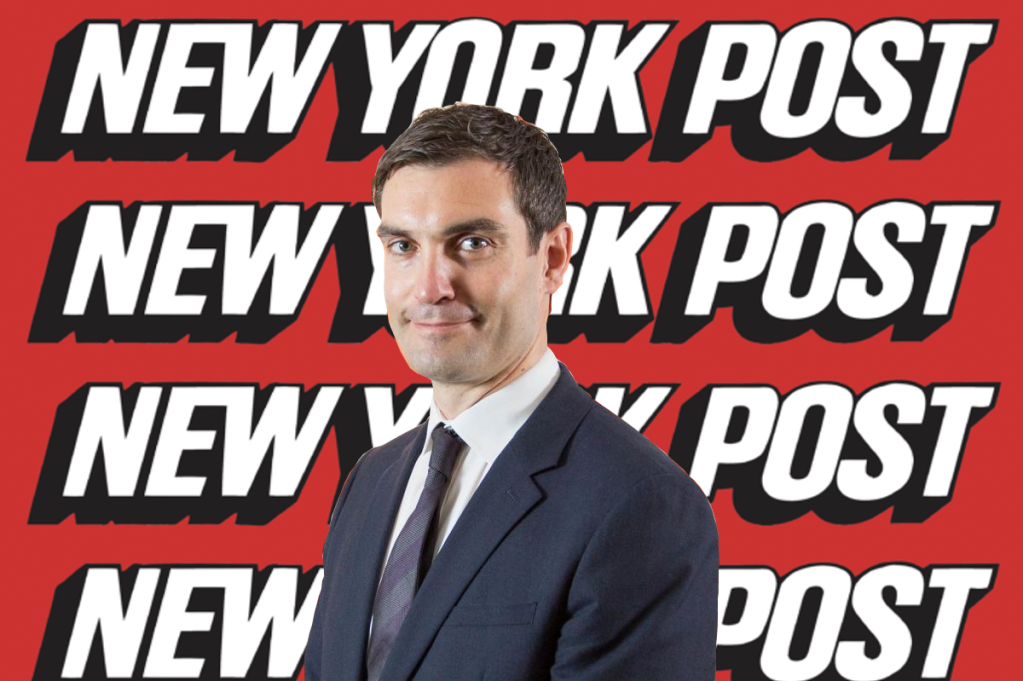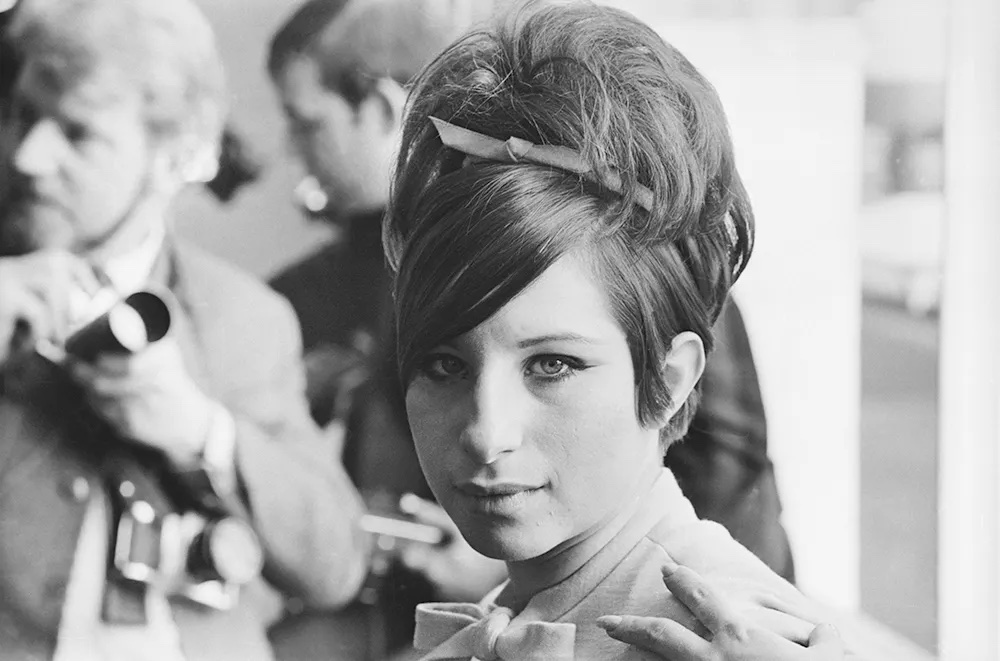There is a difference between a journalist and a hack. Journalists work nine to five. Hacks won’t step a foot out of the office door until their spouses are begging them to come home for dinner. Journalists think theirs is a noble profession. Hacks aren’t interested in nobility. They aren’t bad people, per se. It’s just that their overriding ethical imperative is the pursuit of the story. Get the splash, nail the bastards.
Keith Poole is a hack. You may not have heard of him; few have. But he’s the editor of the New York Post, America’s most boisterous tabloid. Try digging into his life and you’ll soon find that there is next to nothing about him online. But Poole, a Brit who took over at the Post last year, is well-known in London media circles. In fact, as I discovered reporting this piece, almost everyone in British journalism seems to have encountered him.
Poole has risen through the ranks quickly. Before Rupert Murdoch asked him to take over as editor-in-chief at America’s oldest daily newspaper, he was deputy editor of the UK’s most-read paper and fellow Murdoch title, the Sun.
You might think, to put it in tabloid-ese, that a hard-hitting hack would take to the rough and tumble of New York like a duck to water. Apparently not. After Poole got the job, he moved his family from London to Riverdale, an affluent Bronx neighborhood. But, according to Semafor’s Max Tani, New York didn’t live up to the family’s London “standards” — less than a year after enrolling their kids in a swanky New York private school, they are back in Blighty. Keith, however, still lives in Riverdale, traveling regularly between both sides of the Atlantic.
The jet-setting Brit is certainly leaving his mark on the paper. Poole, who was forty-four when he took over in January 2021, has been attempting to break the Post free from its old identity as a tristate staple and become a truly world-beating, trouble-making online tabloid.
The Post‘s goal is to beat the Daily Mail at its own game. The Mail‘s online success is evidence of the transatlantic appeal of British tabloid sensibilities — and if you’re trying to learn from that success, few are better placed to help you do so than Poole. He helped build the Mail’s website into the powerhouse it is today, then did battle with his own creation after moving to the Sun. So far, his time at the Post seems to be a success, nearly doubling its profits in 2022 and has brought in 198 million readers compared to 123 million in the previous year.
It’s odd to think how little people know about Poole given how much time he’s dedicated to exposing the private lives of others. He started out in 2000 working as a reporter at the Evening Standard, a free daily paper in London. After two years, he moved on to the Press Association where he was made news editor; eleven months later he jumped ship to the Daily Mail. It was there that Poole would spend the next decade, climbing the ladder and building a reputation for understanding online audiences.
“He was really highly thought of by the Mail news desk, and was one of the hot shots,” an ex-colleague told me. Poole was, the insider said, integral to the rise of the online news world, alongside Martin Clarke. Clarke, who stepped down as MailOnline editor last year to become the company’s publisher, joked that the website was an “overnight success” that took “thirteen years of blood, sweat, quite a lot of cigarettes and quite a lot of booze.”
While everybody else I spoke to gushed over Poole’s ability to conquer online, one source made the point that “the massive audience was already there,” adding, “all Keith had to do was use it.” Everyone I spoke to conveyed his concern for the standard of online reporting. “He wasn’t like Martin Clarke, just chasing clicks,” said one former colleague. “The online section would have exclusives and diary reporters and actually looked like the paper.”
His move to the Sun brought with it a difficult challenge. An ex-colleague claimed that “seven years ago, the Sun didn’t really exist as a product online. It was an after-thought.” Murdoch, like other old-school proprietors, didn’t initially see the need to move online. An ex-News UK editor told me that “at the advent of online journalism, Murdoch believed that giving articles away for free was insane. The websites of the Times and Sunday Times of London and the Sun were tightly paywalled. That outlook made much more sense with the broadsheets: those types of readers are likelier to pay for a premium editorial product. It didn’t suit the Sun anywhere near as well, which Murdoch eventually realized.”
But when Murdoch’s hand was forced, he brought in Poole. A Sun employee claimed that he “colonized half the office. What started as a hub of four or five people on the outskirts of the newsroom became the center.”
“There’s a natural distrust of you when you come from another paper to the Sun,” one employee told me, “and that distrust is worsened if you’ve come from the main competitor, the Daily Mail.” One story I was told involved Poole apparently trying to make light of the tension while on a trip with other editors. “All the hot shots would go to a holiday park once a year,” said a source. “At one point, Keith tried to have a laugh with the rest of the lads.” Poole apparently made an ill-judged joke and was allegedly picked up by one of his new colleagues and thrown over a bar. “He’s in good shape, and can handle himself, but he didn’t make that joke again.”
It’s no surprise that the most common word that came up when describing Keith Poole was “cold.” Editors are hardly affable creatures. As one source put it: you’d have to have a screw loose to want the job in the first place. With Poole, there’s apparently no small talk — when walking into a meeting it’s straight into “what’s the problem and how can I fix it?” Often, it seems, the answer to the question was “work harder.” Poole would regularly pull marathon shifts, which meant his staff would as well.
There are several possible explanations for Murdoch’s evident affection for Poole. He’s been described to me as tenacious, consistent and hard-working. To Murdoch, he’s the man who can get the job done, whatever the job. There were rumors at the Sun that Poole’s child had been hospitalized over one Christmas, but he nonetheless spent much of the holiday season at his desk. Spiteful gossip, perhaps. But it tells you everything you need to know about Poole’s reputation as a Stakhanovite editor.
Murdoch was apparently so besotted with his new hire that he would take him on Succession-style weekends to his ranch in Australia. The property, known as Cavan Station, was purchased by the media mogul in the mid-1960s and is reportedly the location of only the most intimate get-togethers. Some of my sources even wonder if Poole is being groomed as Murdoch’s possible successor.
These weird weekends are a Murdoch signature. Piers Morgan has written about the day Murdoch tapped him for the editorship of the now defunct News of the World. Morgan was told on short notice to get himself onto Murdoch’s private jet and luckily remembered to get his hands on a newspaper for the journey. Once he landed, Murdoch quizzed the Sun reporter on the day’s news as the two men walked barefoot along Miami Beach. At a party that evening, Murdoch winked at Morgan, before introducing him to someone as his new editor.
Poole, who declined to speak to me for this story, may be more low-key than Piers Morgan, but occasionally lets his views known. One colleague recalled Poole pushing around a drinks trolley of Prosecco and beer on election night in Britain in 2019. The early results pointed to a Conservative landslide. It was only then that the office — which was full of Labour and Liberal Democrat voters — knew that Poole was a genuine right-winger and a big fan of Boris Johnson.
There may also be a more mundane and weird explanation for the strength of their relationship. Everybody — and I mean everybody — I spoke to seems to think that at least part of the reason Rupert Murdoch loves Keith Poole is because Murdoch, too, is actually called Keith.
Murdoch must think he found the right man for the Post job. Whether it’s the right job for Poole is a different question: London media sources wonder whether Poole is eyeing up the deputy editor job at the Times in London. Even if his time at the Post is going well, a return to life on the other side of the Atlantic must be tempting.

























